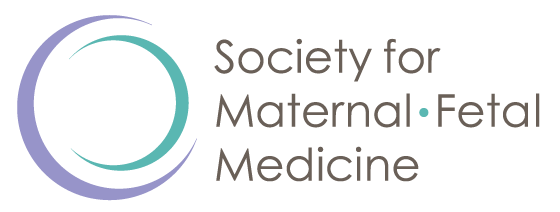
Activity Restriction in Pregnancy
Activity restriction refers to reducing one’s normal activity to any degree. Some healthcare providers recommend activity restriction to manage certain pregnancy complications. These include preterm labor, preterm premature rupture of membranes, elevated blood pressure, preeclampsia, fetal growth restriction, placenta previa, and carrying twins or triplets.
However, research does not show that activity restriction improves outcomes in any of these conditions. In fact, restricting activity during pregnancy may cause harm, including bone loss, muscle loss, overall weight loss, and an increased risk of blood clots. The harmful effects aren’t all physical. Activity restriction can lead to emotional stress stemming from anger, frustration, and worry, and financial stress from lost income.
-
The terms “bed rest” and “activity restriction” are often used interchangeably. In reality, they can mean different things. “Bed rest” is usually considered the strictest form of activity restriction, but even “bed rest” can have different meanings and varying degrees of limitations. There is no one accepted definition of bed rest.
-
Several risks are associated with activity restriction in pregnancy:
Muscle and bone loss. Long periods of inactivity can result in muscle and bone loss, which can occur after only a few days. It is unclear at this point whether muscles and bones return to normal when activity is resumed.
Blood clots. Pregnancy is associated with an increased risk of developing blood clots in the legs (deep venous thrombosis, or DVT) and movement of clots to the lungs (pulmonary embolism, or PE). Some studies have described an additional increased risk of DVT and PE among pregnant individuals placed on bed rest compared with those not on bed rest.
Gestational diabetes. Activity restriction may be associated with a higher rate of gestational diabetes in pregnant individuals admitted to the hospital for other pregnancy-related complications. More studies are needed in this area, but elevated levels of blood sugar commonly occur in nonpregnant patients placed on activity restriction.
Stress and anxiety. Activity restriction has been shown to increase the risk of maternal anxiety and depression, family stress, and loss of income.
-
Based on data from a few well-designed studies, bed rest did not reduce the risk for preterm delivery in pregnant persons either at risk for or already experiencing preterm labor. Some information suggests that among certain people at risk, preterm birth is more common in those placed on activity restriction, both at home and in the hospital.
-
Researchers have not found any evidence that activity restriction helps improve the outcomes in any pregnancy complication. And as stated previously, restricting activity during pregnancy can make outcomes worse.
-
The American College of Obstetricians and Gynecologists states that activity restriction should not be routinely prescribed as a treatment to reduce preterm birth or to prevent preeclampsia and its complications. The Society of Obstetricians and Gynaecologists of Canada states that strict bed rest in the hospital for people already diagnosed with preeclampsia is not recommended. The Royal College of Obstetricians and Gynaecologists states that bed rest is not of benefit and should not be offered to people with pregnancy-associated high blood pressure or preeclampsia. The Society for Maternal-Fetal Medicine recommends against the routine use of activity restriction or bed rest during pregnancy to treat any pregnancy complication.
-
Unfortunately, activity restriction remains a common recommendation for many pregnancy problems. Surveys show that pregnancy care providers continue to recommend activity restriction even though most do not expect it will improve pregnancy outcomes. Although the recommendation is well-intentioned, there is no current evidence to support this practice. There also is evidence to suggest risk with activity restriction. SMFM hopes that by providing you with the most up-to-date and evidence-based guidance on bed rest in pregnancy, you and your pregnancy care provider can make informed decisions about your care.
Quick Facts
Activity restriction, sometimes called “bed rest” or “modified bed rest,” has been used to manage certain complications of pregnancy.
There is no evidence that activity restriction improves outcomes for any pregnancy complications. There is growing evidence that restricting activity during pregnancy may cause harm.
Harmful effects from activity restriction during pregnancy include bone and muscle loss, an increased risk of gestational diabetes, and an increased risk of blood clots.
Most importantly, there is mounting evidence that activity restriction increases the risk of mental health disorders, like depression, and causes significant family disruption and stress.
For these reasons, the Society for Maternal-Fetal Medicine recommends against the use of activity restriction or bed rest during pregnancy to treat any pregnancy complication.
Glossary
Activity Restriction: A term used in medicine to describe the practice of limiting a patient’s activity.
Deep Vein Thrombosis (DVT): A condition in which blood clots develop in the deep veins of the body, most commonly in the legs.
Fetal Growth Restriction: Inadequate growth of the fetus during pregnancy.
Gestational Diabetes: Diabetes that develops during pregnancy.
Placenta Previa: A condition in which the placenta grows too low on the wall of the uterus so that it covers the cervix. It can cause severe, painless bleeding when the cervix begins to dilate (open) late in pregnancy.
Preeclampsia: A pregnancy-specific disorder that causes elevated blood pressure and protein in the urine.
Preterm: Before 37 weeks of pregnancy. Preterm contractions are those that occur before 37 weeks), preterm labor is labor that happens before 37 weeks, and preterm birth is birth that occurs before 37 weeks).
Preterm premature rupture of membranes: When the bag of water breaks before 37 weeks of pregnancy and before the onset of labor.
Pulmonary Embolism (PE): A condition in which a blood clot that has formed in another area of the body breaks off and travels to the lungs.
Last Updated: December 2023
